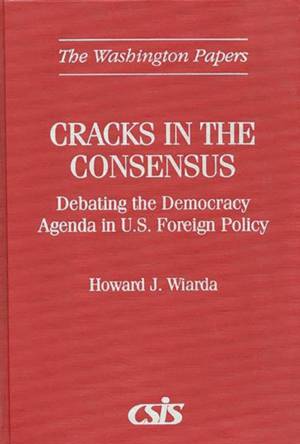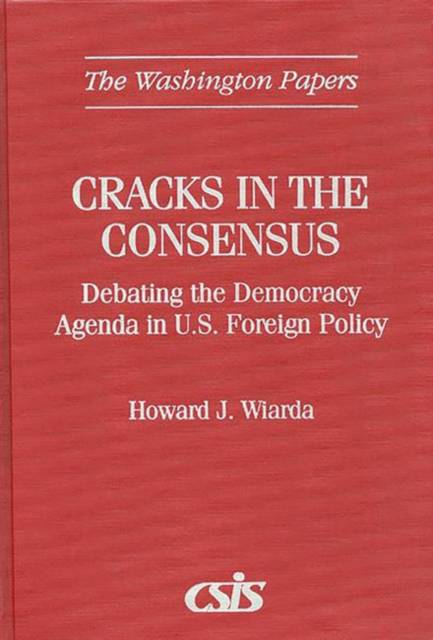
Bedankt voor het vertrouwen het afgelopen jaar! Om jou te bedanken bieden we GRATIS verzending (in België) aan op alles gedurende de hele maand januari.
- Afhalen na 1 uur in een winkel met voorraad
- In januari gratis thuislevering in België
- Ruim aanbod met 7 miljoen producten
Bedankt voor het vertrouwen het afgelopen jaar! Om jou te bedanken bieden we GRATIS verzending (in België) aan op alles gedurende de hele maand januari.
- Afhalen na 1 uur in een winkel met voorraad
- In januari gratis thuislevering in België
- Ruim aanbod met 7 miljoen producten
Zoeken
€ 127,45
+ 254 punten
Uitvoering
Omschrijving
Since the 1980s a remarkable consensus has emerged in U.S. foreign policy based on three main pillars: democracy, free trade, and open markets. The free trade and open markets issues currently are being debated in Congress, but recent events in Russia, Bosnia, Mexico, and Haiti (among others) force us to reexamine the democracy-fostering aspects of U.S. policy as well. Howard J. Wiarda offers a probing analysis of U.S. democracy/elections policy, exploring both the positive aspects of the policy and its negative implications. His volume ranges widely across countries and regions to examine Russia, Eastern Europe, Asia, Africa, the Middle East, and Latin America. It wrestles with the complex issues raised by the elections/democracy agenda and concludes with a series of recommendations for analysts and policymakers.
Specificaties
Betrokkenen
- Auteur(s):
- Uitgeverij:
Inhoud
- Aantal bladzijden:
- 124
- Taal:
- Engels
- Reeks:
Eigenschappen
- Productcode (EAN):
- 9780275961015
- Verschijningsdatum:
- 26/08/1997
- Uitvoering:
- Hardcover
- Formaat:
- Genaaid
- Afmetingen:
- 152 mm x 229 mm
- Gewicht:
- 335 g

Alleen bij Standaard Boekhandel
+ 254 punten op je klantenkaart van Standaard Boekhandel
Beoordelingen
We publiceren alleen reviews die voldoen aan de voorwaarden voor reviews. Bekijk onze voorwaarden voor reviews.









